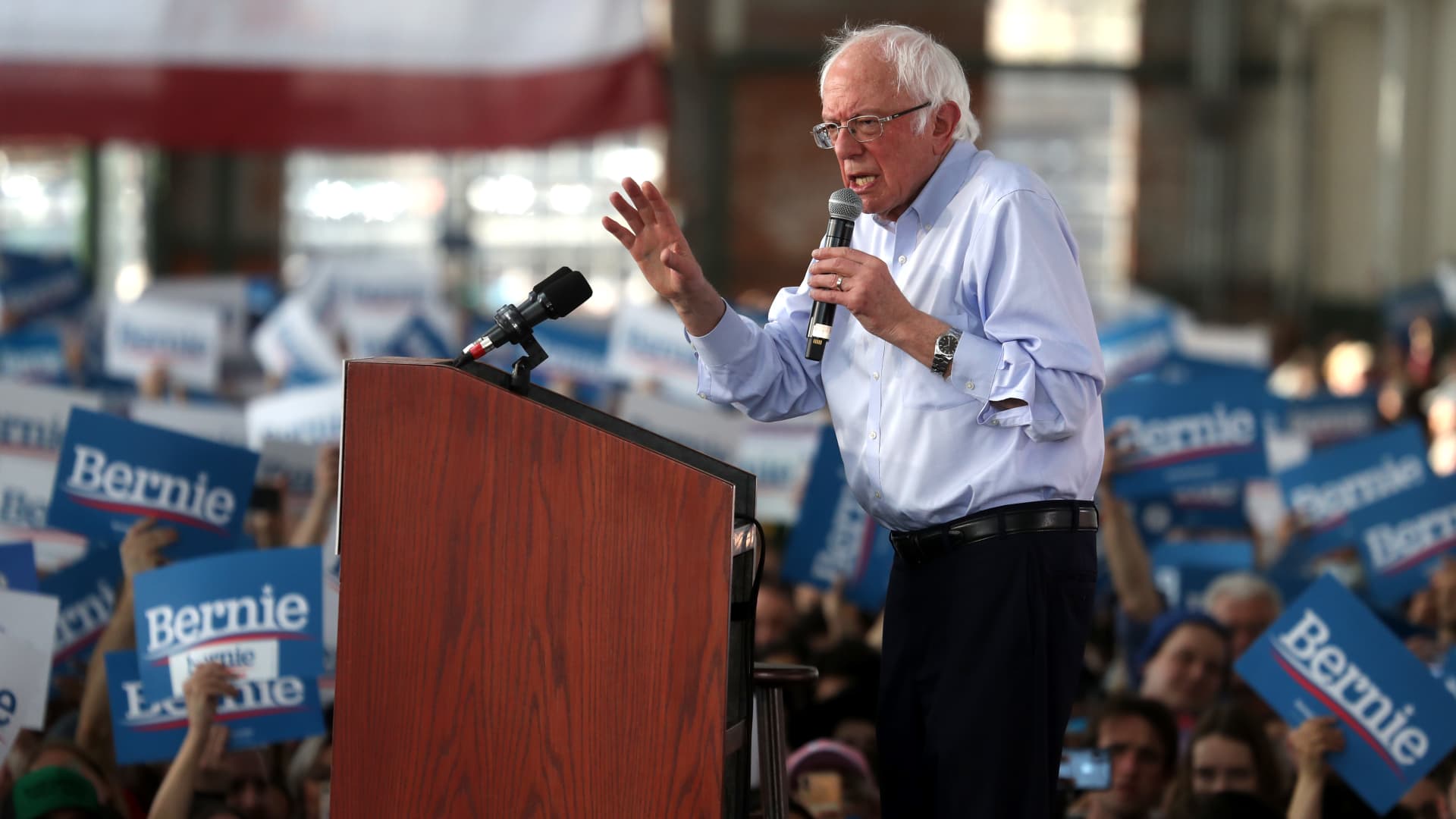While details of how Democrats would apply a financial transaction tax are vague, opponents say it could hit Americans each time they contribute to an account such as a 401(k) — so, with every paycheck — and when they withdraw money later.
It could also cost investors each time they rebalance their account, which financial advisors typically recommend doing at least once a year. Investors could also bear the tax indirectly from asset managers, especially those who trade often and then pass the tax cost along to investors.
The tax would cost a retirement saver with a $100,000 account about $281 per year, according to the Modern Markets Initiative, a trade group representing high-frequency traders, one of the cohorts that would be hard hit by a financial transaction tax.
That would compound to $64,232 over a 40-year period of saving, according to the group. (It based its calculation on Sanders' tax framework — a 0.5% tax on stock trades and 0.1% on bonds.)
Vanguard Group, an asset manager, said "everyday savers" would need to work around 2½ years longer before retiring if a 0.1% transaction tax were imposed.

 www.cnbc.com
www.cnbc.com
It could also cost investors each time they rebalance their account, which financial advisors typically recommend doing at least once a year. Investors could also bear the tax indirectly from asset managers, especially those who trade often and then pass the tax cost along to investors.
The tax would cost a retirement saver with a $100,000 account about $281 per year, according to the Modern Markets Initiative, a trade group representing high-frequency traders, one of the cohorts that would be hard hit by a financial transaction tax.
That would compound to $64,232 over a 40-year period of saving, according to the group. (It based its calculation on Sanders' tax framework — a 0.5% tax on stock trades and 0.1% on bonds.)
Vanguard Group, an asset manager, said "everyday savers" would need to work around 2½ years longer before retiring if a 0.1% transaction tax were imposed.

Democrat plans to tax the wealthy could hit an unintended target: Average Americans
Several Democratic presidential candidates have proposed a financial transaction tax to rein in wealth inequality, but the cost could extend to the population it's meant to help: everyday Americans.
